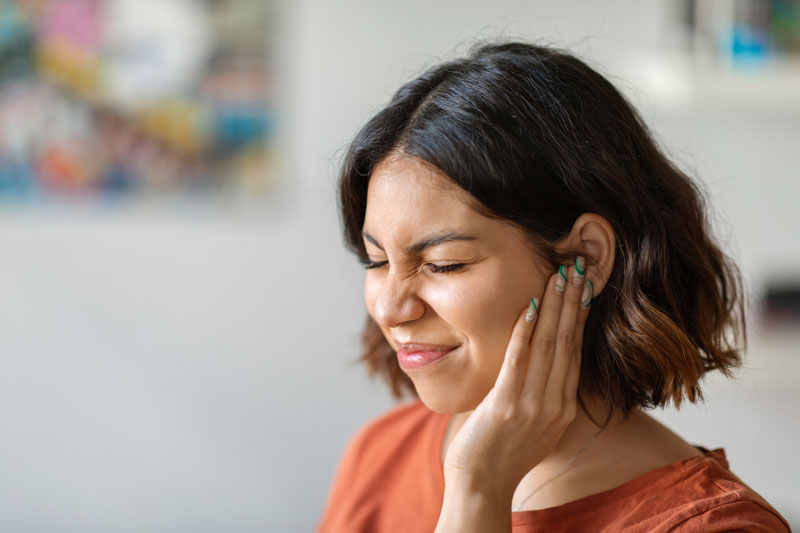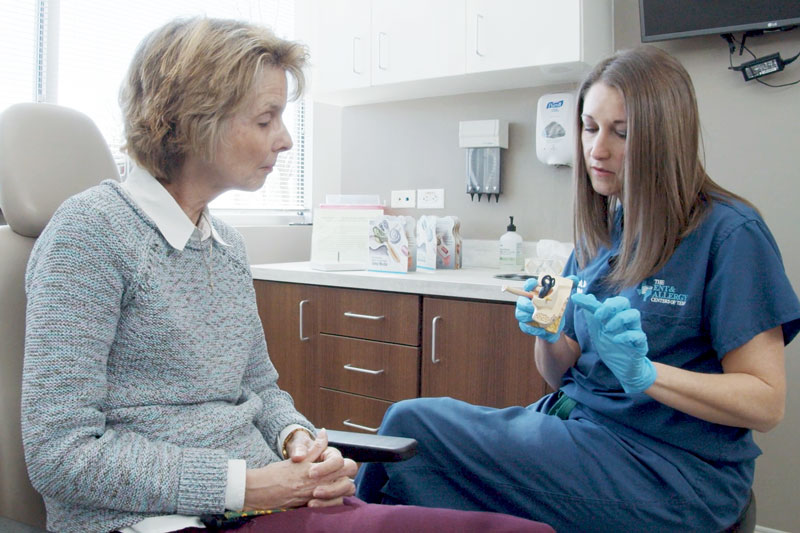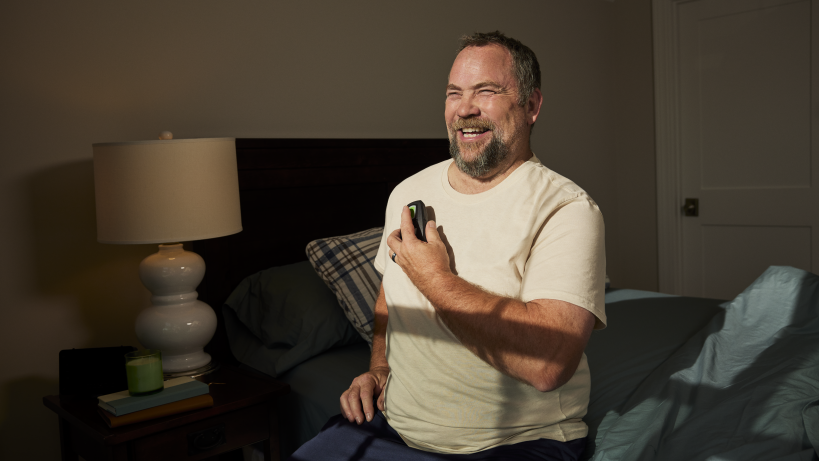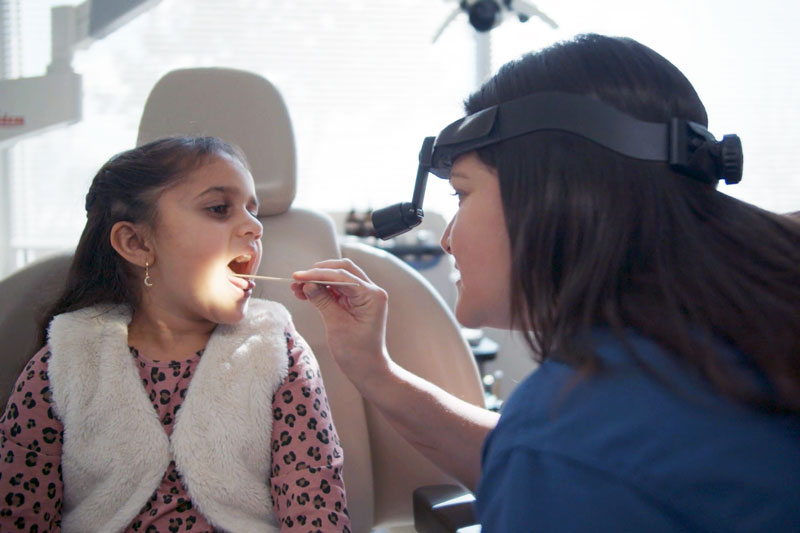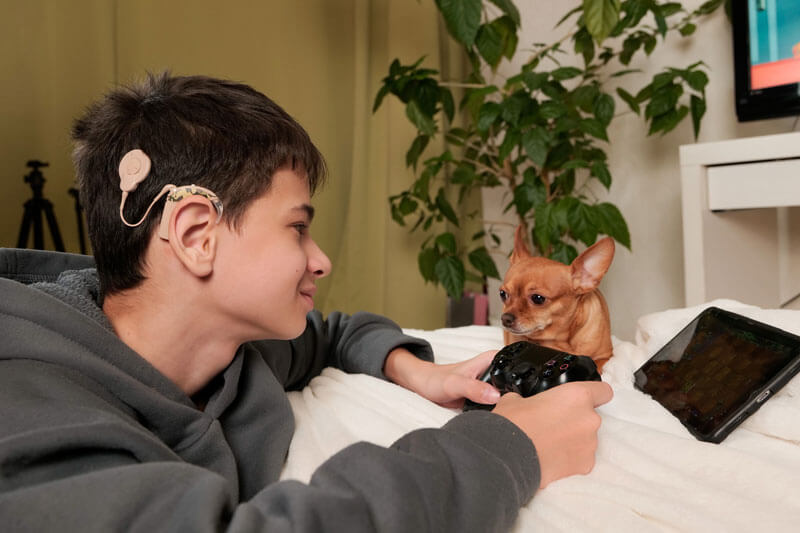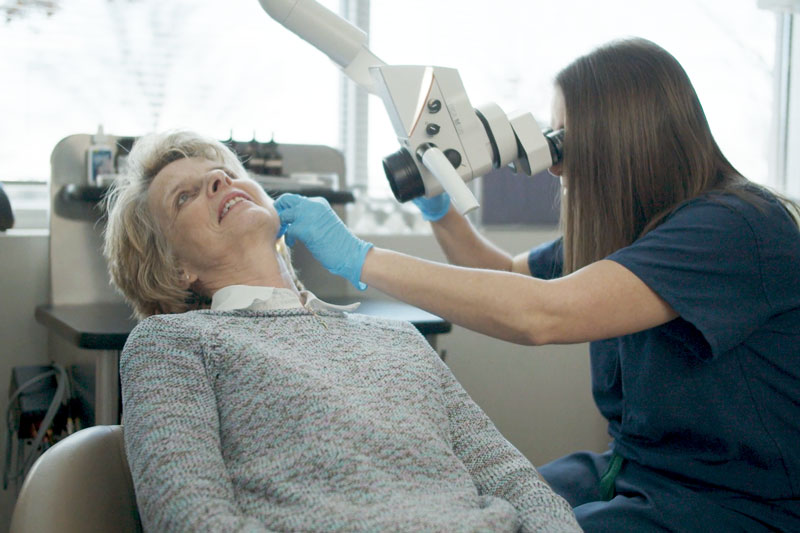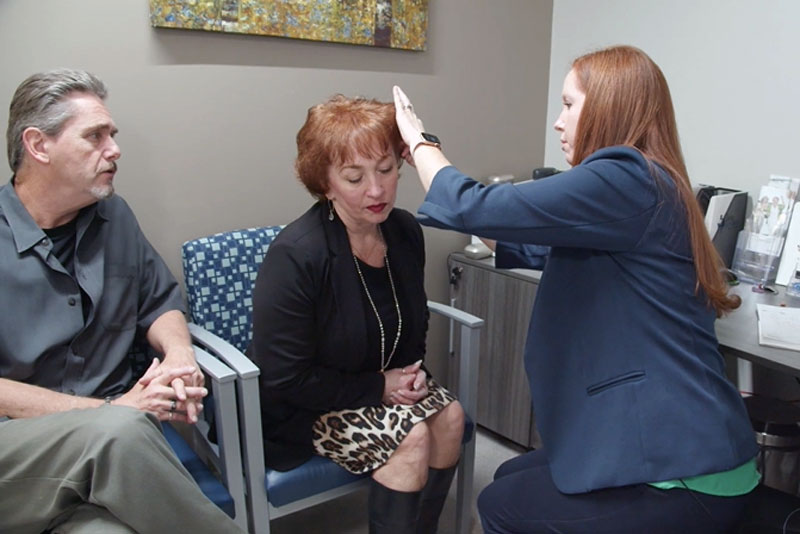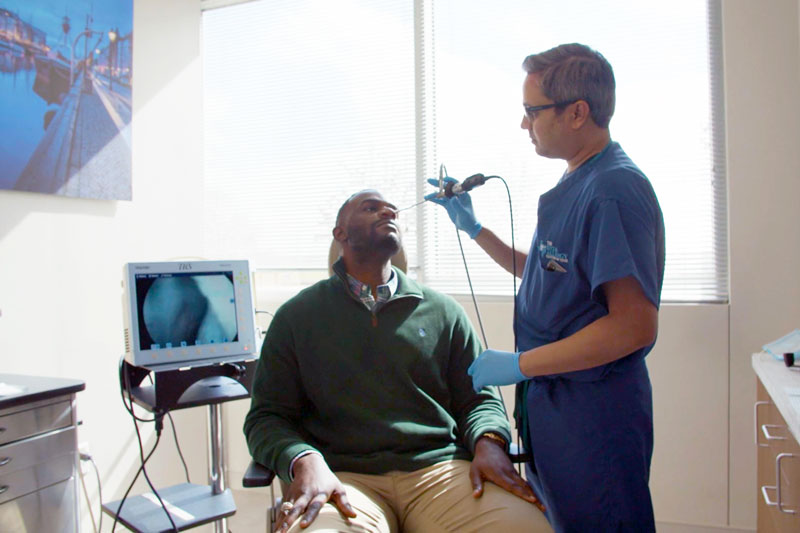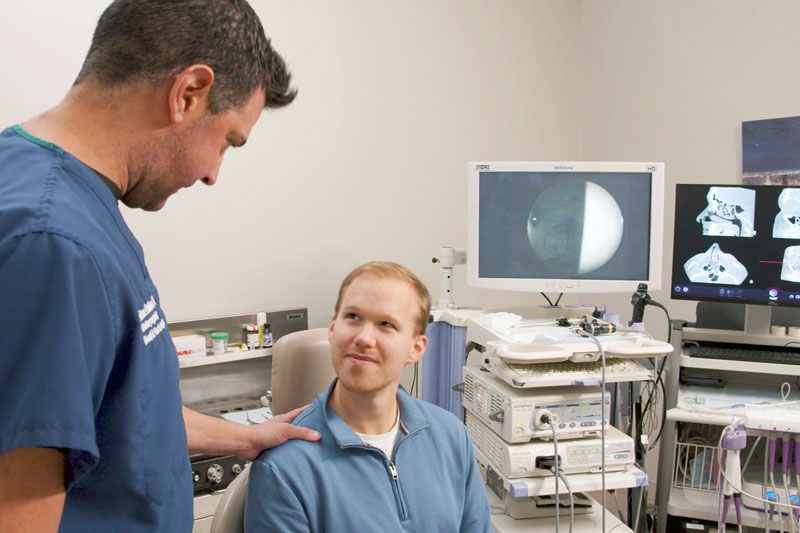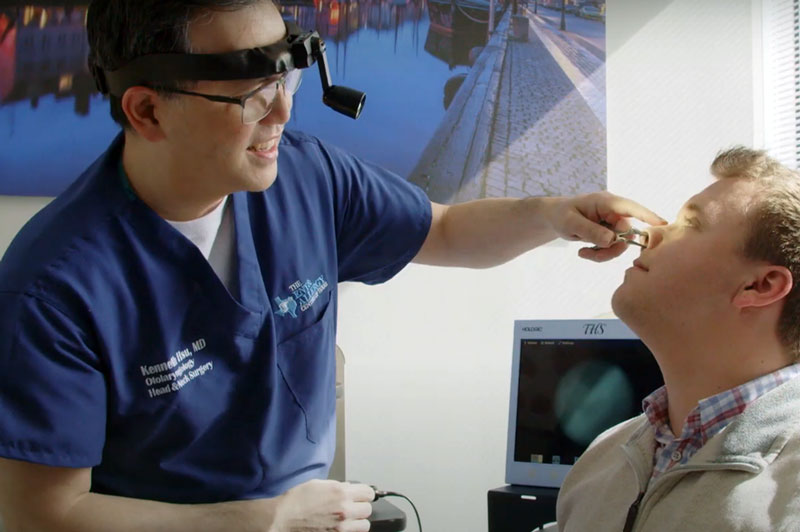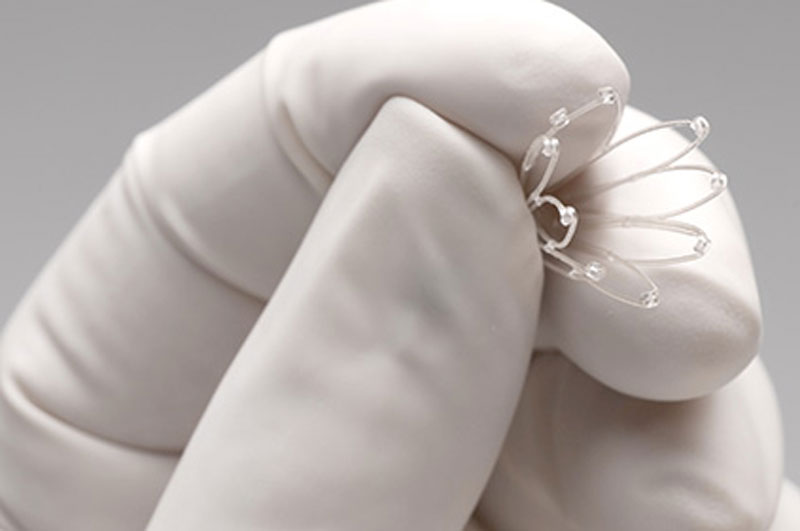What is Tinnitus?
Tinnitus is a hearing condition that can significantly disrupt daily life. Many patients report a feeling similar to a ringing or buzzing in the ears. This sensation can present as any type of sound due to nerve activity that the brain perceives as auditory input. Although everyone may experience tinnitus occasionally, some individuals suffer from ongoing or nearly constant tinnitus, which can be distressing and even painful. Tinnitus is a prevalent condition, affecting about 1 in 5 people in the United States.

What Causes Tinnitus?
The leading cause of tinnitus is exposure to loud noises, although it can also result from more benign issues such as excessive earwax buildup. The primary cause of tinnitus is exposure to loud noises, but it can also result from:
- Hearing loss
- Head trauma
- Certain medications
- Excessive earwax buildup
Tinnitus may be linked to various underlying conditions, including high blood pressure, stress, dental problems, metabolic disorders, and high cholesterol, making it difficult to pinpoint its exact cause. Therefore, it is best to have your ears evaluated to determine the specific cause of your concern.
What Are The Symptoms Of Tinnitus?
Tinnitus symptoms can vary from person to person, but common symptoms include but aren’t limited to:
- Buzzing
- Ringing
- Clicking
- Roaring
- Hissing
Patients can experience tinnitus in one or both ears. There are two types of tinnitus:
Subjective Tinnitus: You may experience subjective tinnitus, which only you can hear. This common form can occur due to issues in the inner, outer, or middle ear, as well as problems with auditory nerves or the part of the brain responsible for interpreting nerve signals, known as the auditory pathways.
Objective Tinnitus: This form of tinnitus, known as objective tinnitus, is a rare condition in which a doctor can hear the sound when examining the patient’s ears. Problems with blood vessels or muscle contractions can cause it.
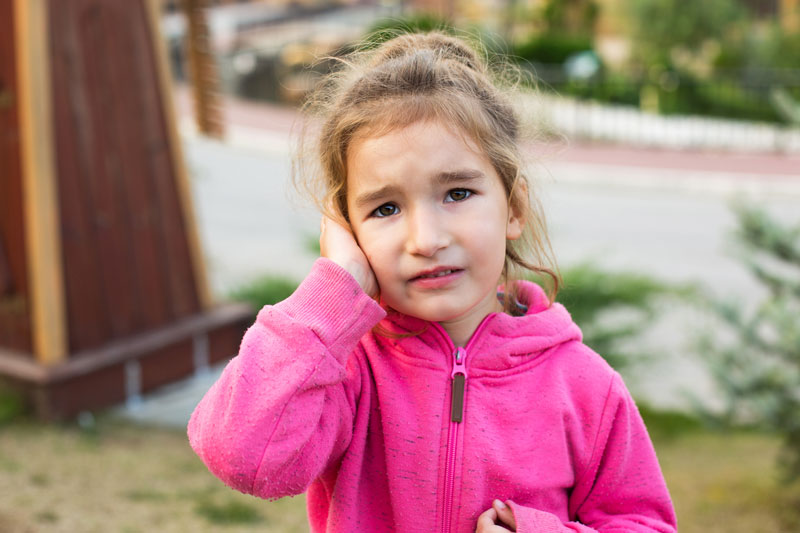
Can Children Get Tinnitus?
Children and young adults can develop tinnitus. Although it is more commonly associated with adults, children can experience tinnitus for various reasons, including:
- Exposure to Loud Noises: Just like adults, children can develop tinnitus after exposure to loud sounds, such as concerts, fireworks, or loud machinery.
- Ear Infections: Chronic ear infections or otitis media can lead to tinnitus in children.
- Hearing Loss: Some children with hearing loss also experience tinnitus. This can be due to congenital hearing loss or hearing loss acquired from illnesses or injury.
- Head or Neck Injuries: Trauma to the head or neck can cause tinnitus.
- Certain Medications: Some medications are known to cause tinnitus as a side effect, even in children.
- Stress and Anxiety: Emotional stress or anxiety can sometimes trigger or worsen tinnitus in children.
If a child is experiencing tinnitus, it is essential to consult a healthcare professional to determine the underlying cause and appropriate treatment. Early intervention can help manage symptoms and improve the child’s quality of life.
How is Tinnitus Treated?
Treating tinnitus involves addressing underlying causes and managing symptoms to improve quality of life. Common approaches include using hearing aids to amplify external sounds and mask tinnitus, sound therapy with white noise machines or environmental sounds, and cognitive behavioral therapy (CBT) to manage the emotional response to tinnitus. Tinnitus retraining therapy (TRT) combines sound treatment with counseling to help habituate patients to the tinnitus sound, making it less noticeable.
Medications such as anti-anxiety drugs and antidepressants can also alleviate symptoms, mainly when tinnitus is linked to anxiety or depression. Additionally, lifestyle changes like reducing exposure to loud noises, managing stress through yoga or meditation, and avoiding irritants like caffeine and nicotine can be beneficial. Medical treatments like earwax removal and addressing conditions such as high blood pressure or TMJ disorders can improve symptoms while hearing protection prevents further auditory damage.
Tinnitus Treatment and Management in Texas
Subsequent thorough evaluation at The ENT & Allergy Centers of Texas is essential for effective tinnitus management. Our board-certified ENT specialists are committed to offering personalized care to manage and alleviate tinnitus symptoms. Book an appointment online at an ENT & Allergy Centers of Texas location near you.

